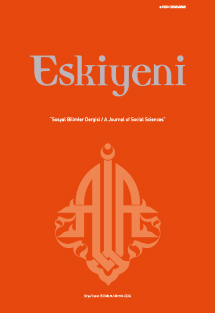Peter Berger Örneğinde Sekülerleşme Tartışmaları: Etkiler ve Fikrî Değişim
Debates on Secularization in the Example of Peter Berger: Impacts and Intellectual Change
Author(s): Ahmet Özalp, Fatma ÖzerSubject(s): Sociology of Religion
Published by: Anadolu İlahiyat Akademisi
Keywords: Sociology of Religion; Peter Berger; Secularization; Anomie; Weber; Desecularization;
Summary/Abstract: Religion stands as one of the institutions profoundly influencing human life. Over the years, the effects of religion on social life have been a subject of discussion by many scholars. In this respect, the effect of religion on society has always been found worthy of research by scientists due to changing social and periodic conditions. In particular, the problem that the individual or society has moved away from the social effects of religion in recent times or that its effect on people has increased in different ways has pushed many sociologists to research on this subject. In this context, Peter Berger emerges as a significant figure in the sociology of religion, in terms of his views and ideas. In articulating his thoughts on the changing nature of religion over time, Berger was heavily influenced by Karl Marks, Emile Durkheim, and Max Weber. This study will provide a detailed examination of Berger's phenomenological approach used in his works as a method and perspective on the social construction of reality. Additionally, the influences of Weber, Durkheim, and Marks on Berger's thesis of secularization will be discussed. Finally, Berger's thoughts on secularization and desecularization will be analyzed in detail. A literature review technique was used in the study. The study's main purpose is to contribute to the literature and understand the changes that have occurred over time in Berger's secularization thesis. The main question shaping the study is how, according to Berger, the effects of religion on human life in social life have changed over time. According to the study results, Berger was significantly influenced by the ideas of founding sociologists on secularization. However, it seems that Berger put forward the desecularization thesis to analyze the revival of new religious movements around the world that developed as a reaction to modernity. Furthermore, although Berger is thought to have used mainly social constructionist and interpretative approaches in his studies, he is also thought to have made use of phenomenology. Berger's ideas on secularization and desecularization are also expected to guide scientists conducting research on this subject.
Journal: Eskiyeni
- Issue Year: 2024
- Issue No: 52
- Page Range: 79-99
- Page Count: 21
- Language: Turkish

